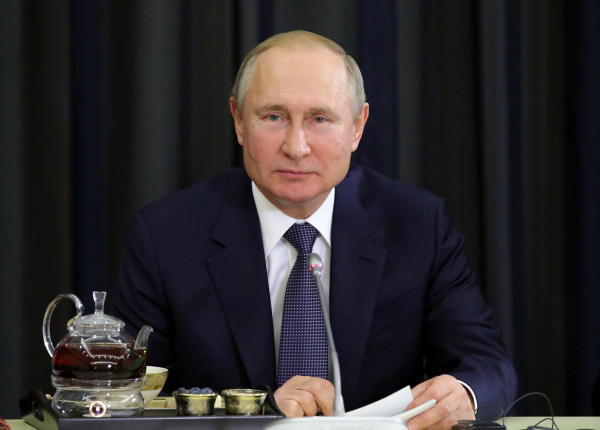Rogue Mercenaries' Onslaught on Moscow Sparks Rumors of Putin's Retreat

Amid the rapid advance of the Wagner Group's rogue mercenaries towards Moscow, President Vladimir Putin's presidential aircraft was seen departing from the capital in the early hours of Saturday. The sudden move fueled speculation about Putin possibly fleeing Moscow. Despite the aircraft's disappearance from the flight radar system near Tver, where Putin owns a rural retreat, Kremlin spokesperson Dmitry Peskov maintained that the president was "working in the Kremlin."
The Lipetsk region's governor, Igor Artamonov, affirmed the advancement of a Wagner military column through Krasnoye village, approximately 250 miles from Moscow. As the private Wagner Group, led by Yevgeny Prigozhin, a one-time Putin ally, continued to gain ground, Chechen leader Ramzan Kadyrov pledged his support to Russia in quelling the rebellion.
The rebel forces have already seized Rostov-on-Don, a strategic city near the Ukraine border that plays a crucial role in Russia's invasion logistics. The hardened private militia, featuring troop carriers and at least one tank, is now swiftly moving north through western Russia.
Heightened tension is palpable in Moscow, with increased security measures in place. Social media videos depicted increasing violence, including strikes on what seemed to be an insurgent convoy making its way to Moscow.
Putin, in a televised address, likened Prigozhin’s show of force to the Bolshevik revolution and Russia's civil war, denouncing it as "excessive ambitions and vested interests" leading to betrayal. However, Prigozhin hit back, asserting their patriotism and refusal to surrender to the demands of Putin or any other authority.
Prigozhin, who has been vocal in his criticism of Russia's military leadership, blamed Defense Minister Sergei Shoigu for a rocket strike against Wagner’s camp in Ukraine, which allegedly resulted in the death of 2,000 of his soldiers. He threatened retribution and appealed to Russian forces not to resist.
The internal crisis poses a serious dilemma for Putin, with the majority of his troops engaged on the front and in southern Ukraine. Meanwhile, Prigozhin, the head of a private army comprising thousands of fighters drawn from Russian prisons, insists on public support for his cause.
The rebellion represents a serious challenge to Putin's authority, as highlighted by Army Lieutenant-General Vladimir Alekseyev, who urged Prigozhin to reconsider his actions, stressing that only the president has the right to appoint the top leadership of the armed forces.














